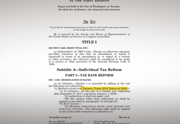Are these common medications putting you at risk? See the FDA’s latest warning
- Replies 0
If you’re one of the millions of Americans who reach for medications when allergy season hits, you’re not alone.
For many, these little pills are a lifeline—helping you breathe easier, sleep better, and enjoy the great outdoors without a box of tissues glued to your side.
But a new warning from the US Food and Drug Administration (FDA) has allergy sufferers buzzing, and it’s something every member of The GrayVine community should know about.
Why Does This Matter?
On May 16, the FDA issued a cautionary statement about two of the most popular oral allergy medications: Zyrtec (cetirizine) and Xyzal (levocetirizine).
The agency warned that discontinuing long-term use of the widely used oral allergy medications Zyrtec or Xyzal may lead to “rare but intense itching.”
In recent months, millions of Americans have grappled with seasonal allergies triggered by pollen and blooming plants.
Many have reported sneezing, itchy eyes and runny noses, prompting a turn to prescription and over-the-counter allergy medications.

According to the American College of Allergy, Asthma and Immunology, citing data from the Centers for Disease Control and Prevention (CDC), nearly one in three US adults and more than one in four US children report having a seasonal allergy, eczema or food allergy.
The data showed that more than 100 million Americans reported having allergy symptoms. In 2021, approximately 81 million people in the UShad hay fever.
In its warning, the FDA said that more than 80 million packages of the popular allergy medications were purchased in 2022.
What’s Behind the Itch?
The FDA has reported that itching—medically referred to as pruritus—“has been reported in patients who used these medicines daily, typically for at least a few months and often for years.”
Also read: Are you living in an allergy danger zone? These maps reveal the states at greatest risk!
Notably, these individuals did not experience itching prior to using the allergy medications.
The symptoms were severe enough to require medical treatment. According to the FDA, the itching “may improve with restarting the medicines.”
In response, the agency is updating the prescribing information for the prescription forms of cetirizine (Zyrtec) and levocetirizine (Xyzal) to include a new warning about this potential risk.
Cetirizine and levocetirizine are antihistamines that work by blocking histamines, the chemicals the body releases during allergic reactions.

Cetirizine was first approved as a prescription medication in 1995 and became available over the counter in 2007.
Levocetirizine followed, gaining prescription approval in 2007 and transitioning to over-the-counter status in 2017.
The FDA’s warning stems from 209 reported cases of pruritus globally, 197 of which occurred in the US. These cases were submitted to the agency between April 25, 2017, and July 6, 2023.
Both Zyrtec and Xyzal are antihistamines. They work by blocking histamines—those pesky chemicals your body releases during an allergic reaction.
Also read: Before you take that next bite, you might want to double check. This recall could affect you!
What Should You Do If You’re Taking Zyrtec or Xyzal?
First, don’t panic! The risk is rare, but it’s important to be informed. Here’s what you can do:
1. Don’t Stop Cold Turkey: If you’ve been taking Zyrtec or Xyzal daily for months or years, talk to your healthcare provider before stopping. They can help you taper off safely or suggest alternatives.
2. Watch for Symptoms: If you do stop and develop severe itching (especially if it’s new and not related to your allergies), contact your doctor. In some cases, restarting the medication can help, but always consult a professional first.
3. Stay Informed: The FDA is updating prescribing information, and more research is underway. Keep an eye out for new guidance, especially if you rely on these medications long-term.
Source: Dr. Zachary Rubin / Youtube.
What the Experts and Companies Are Saying
A representative for Opella, the company behind Xyzal, told Newsweek: “Xyzal has a strong track record backed by scientific research and user satisfaction. We stand by the safety and efficacy of Xyzal when used as directed.”
The American Academy of Allergy, Asthma & Immunology posted on X (formerly Twitter): “FDA requires warning about rare but severe itching after stopping long-term use of oral allergy medicines cetirizine or levocetirizine (Zyrtec, Xyzal, and other trade names).”
Zyrtec, also posting on social media, commented: “The allergens are potent this year and normally we’re a cut above!”
Read next: Are your favorite nuts putting your health at risk? FDA issues urgent highest-level recall warning—what you need to know now

Have you or someone you know experienced severe itching after stopping allergy medications? Do you have tips for managing allergies naturally, or questions about the FDA’s warning? Share your stories, questions, and advice in the comments below!
For many, these little pills are a lifeline—helping you breathe easier, sleep better, and enjoy the great outdoors without a box of tissues glued to your side.
But a new warning from the US Food and Drug Administration (FDA) has allergy sufferers buzzing, and it’s something every member of The GrayVine community should know about.
Why Does This Matter?
On May 16, the FDA issued a cautionary statement about two of the most popular oral allergy medications: Zyrtec (cetirizine) and Xyzal (levocetirizine).
The agency warned that discontinuing long-term use of the widely used oral allergy medications Zyrtec or Xyzal may lead to “rare but intense itching.”
In recent months, millions of Americans have grappled with seasonal allergies triggered by pollen and blooming plants.
Many have reported sneezing, itchy eyes and runny noses, prompting a turn to prescription and over-the-counter allergy medications.

The US Food and Drug Administration has warned that some people who stop long-term use of popular allergy medications Zyrtec or Xyzal might experience rare but severe itching, even if they didn’t have itching beforehand. Image source: Simon Kadula / Unsplash.
According to the American College of Allergy, Asthma and Immunology, citing data from the Centers for Disease Control and Prevention (CDC), nearly one in three US adults and more than one in four US children report having a seasonal allergy, eczema or food allergy.
The data showed that more than 100 million Americans reported having allergy symptoms. In 2021, approximately 81 million people in the UShad hay fever.
In its warning, the FDA said that more than 80 million packages of the popular allergy medications were purchased in 2022.
What’s Behind the Itch?
The FDA has reported that itching—medically referred to as pruritus—“has been reported in patients who used these medicines daily, typically for at least a few months and often for years.”
Also read: Are you living in an allergy danger zone? These maps reveal the states at greatest risk!
Notably, these individuals did not experience itching prior to using the allergy medications.
The symptoms were severe enough to require medical treatment. According to the FDA, the itching “may improve with restarting the medicines.”
In response, the agency is updating the prescribing information for the prescription forms of cetirizine (Zyrtec) and levocetirizine (Xyzal) to include a new warning about this potential risk.
Cetirizine and levocetirizine are antihistamines that work by blocking histamines, the chemicals the body releases during allergic reactions.

The FDA is updating the prescribing information for these medications to include a warning about the risk, following more than 200 reported cases worldwide (mostly in the US) of severe itching after stopping the medicine. Image source: Brittany Colette / Unsplash.
Cetirizine was first approved as a prescription medication in 1995 and became available over the counter in 2007.
Levocetirizine followed, gaining prescription approval in 2007 and transitioning to over-the-counter status in 2017.
The FDA’s warning stems from 209 reported cases of pruritus globally, 197 of which occurred in the US. These cases were submitted to the agency between April 25, 2017, and July 6, 2023.
Both Zyrtec and Xyzal are antihistamines. They work by blocking histamines—those pesky chemicals your body releases during an allergic reaction.
Also read: Before you take that next bite, you might want to double check. This recall could affect you!
What Should You Do If You’re Taking Zyrtec or Xyzal?
First, don’t panic! The risk is rare, but it’s important to be informed. Here’s what you can do:
1. Don’t Stop Cold Turkey: If you’ve been taking Zyrtec or Xyzal daily for months or years, talk to your healthcare provider before stopping. They can help you taper off safely or suggest alternatives.
2. Watch for Symptoms: If you do stop and develop severe itching (especially if it’s new and not related to your allergies), contact your doctor. In some cases, restarting the medication can help, but always consult a professional first.
3. Stay Informed: The FDA is updating prescribing information, and more research is underway. Keep an eye out for new guidance, especially if you rely on these medications long-term.
Source: Dr. Zachary Rubin / Youtube.
What the Experts and Companies Are Saying
A representative for Opella, the company behind Xyzal, told Newsweek: “Xyzal has a strong track record backed by scientific research and user satisfaction. We stand by the safety and efficacy of Xyzal when used as directed.”
The American Academy of Allergy, Asthma & Immunology posted on X (formerly Twitter): “FDA requires warning about rare but severe itching after stopping long-term use of oral allergy medicines cetirizine or levocetirizine (Zyrtec, Xyzal, and other trade names).”
Zyrtec, also posting on social media, commented: “The allergens are potent this year and normally we’re a cut above!”
Read next: Are your favorite nuts putting your health at risk? FDA issues urgent highest-level recall warning—what you need to know now
Key Takeaways
- The US Food and Drug Administration has warned that some people who stop long-term use of popular allergy medications Zyrtec or Xyzal might experience rare but severe itching, even if they didn’t have itching beforehand.
- The FDA is updating the prescribing information for these medications to include a warning about the risk, following more than 200 reported cases worldwide (mostly in the US) of severe itching after stopping the medicine.
- Patients are being advised to contact their healthcare providers if they develop serious itching after stopping these antihistamines, as the symptoms may require medical intervention or could improve if the medicine is restarted.
- Zyrtec and Xyzal, which are used to treat hay fever and other allergies, have been widely purchased in the U.S., with over 80 million packages sold in 2022, and the manufacturers maintain the medicines are safe and effective when used as directed.
Have you or someone you know experienced severe itching after stopping allergy medications? Do you have tips for managing allergies naturally, or questions about the FDA’s warning? Share your stories, questions, and advice in the comments below!






